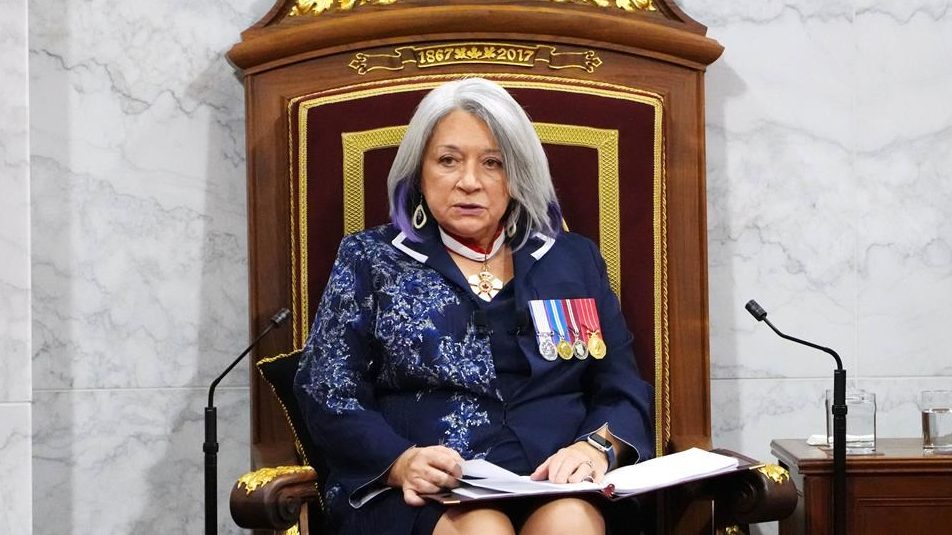Emotional support or assistance for those who are affected by the residential school system can be found at Indian Residential School Survivors Society toll-free 1 (800) 721-0066 or 24-hr Crisis Line 1 (866) 925-4419. Governor General Mary Simon will be making a trip to B.C. this long weekend. According to her itinerary, her Monday will be spent in Kamloops, where she will mark one year with the Tk’emlúps te Secwépemc since the confirmation of unmarked graves at the former residential school site in the area. A day-long memorial is planned for May 23. Joined by her husband, Simon will meet with Kukpi7 Rosanne Casimir and others in the community “to pay their respects to the children left in unmarked graves and to the survivors of the residential school.” The governor general is also set to speak at the memorial “in honour of ‘Le Estcwicwe’?’” — or “the missing.” Simon, who was born in an Inuit village in northern Quebec, is the first Indigenous governor general in Canada. She has been recognized throughout her life for her work on Arctic and Indigenous issues, as well as for her efforts to advocate for Inuit rights. Simon became governor general just shortly after the discovery was made in Kamloops in 2021. Her appointment came at a critical moment for Canada’s relationship with Indigenous Peoples. At the time, she called her appointment a “historic and inspirational moment for Canada, and a step forward on the long path towards reconciliation.” During her remarks, Simon described her appointment as a “historic and inspirational moment for Canada, and a step forward on the long path towards reconciliation,” and spoke about having grown up with an Inuk mother and a father from the south. Related articles: Ceremony to mark sombre anniversary of Kamloops residential school discovery Residential school site searches so far just ‘tip of the iceberg’: Miller Pope Francis coming to Canada, but will not be stopping in Kamloops First Nations need long-term funding for residential school investigations: chief Monday’s ceremony by the Tk’emlúps te Secwépemc will start at 5:00 a.m. and end at 7:00 p.m. Casimir says it’s about coming together to heal and that members of the public are welcome and encouraged to attend. “It’s our cultural tradition, after a year, to truly honour and reflect and look at the next chapters, and what that looks like towards healing,” she said, adding she expects a large crowd will gather. “We know that many will be travelling from all over Canada, as well as the United States, coming here to honour, reflect and to participate in these cultural protocols and those next steps.” Thousands of unmarked graves have been discovered at former residential school sites across the country over the past year. Searches continue to be conducted. Many of the residential schools in Canada officially operated from the late 1800s through most of the 1900s. It’s estimated 15,000 Indigenous children were forced into the system. Many survivors and their families have provided detailed testimony of physical, emotional, mental, and sexual abuse at the hands of residential school staff. The system has led to intergenerational trauma that continues to affect families and communities to this day. -With files from Mike Lloyd and The Canadian Press
Top Trending
Friday, June 20, 2025



